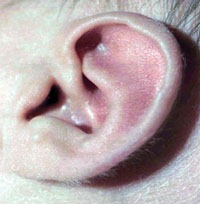Commonly Confused Words, Part 2
Original Post: 8 November 2012
Posted Here: 3 December 2017
Here is another guest post from Janet's Commonly Confused Words workshops for our local critique group.
Homonyms Here and There
 Technically, homonyms are words that are spelled and pronounced the same but have different meanings. "Lay" is an example: one meaning is the past tense of lie, "I lay down for an hour," and another is to set or place something down, "I will lay the book on the table." "Lie" is another example: "I will lie down this afternoon" and "I told a big, fat lie."
Technically, homonyms are words that are spelled and pronounced the same but have different meanings. "Lay" is an example: one meaning is the past tense of lie, "I lay down for an hour," and another is to set or place something down, "I will lay the book on the table." "Lie" is another example: "I will lie down this afternoon" and "I told a big, fat lie."
Homophones are words that are pronounced the same, regardless of how they are spelled. If you use the wrong spelling, your spell-checker won't catch the error. Homographs are spelled the same, regardless of meaning or pronunciation. Some teachers lump them all together and call them homonyms. What's important to writers is that we write the word we want.
Examples:
Led vs Lead
The past tense of the verb "to lead" (long e sound) is led (short e sound). The metal lead is pronounced with a short e sound also; they are homophones. Words such as lead (opposite of follow) and lead (metal) which are spelled the same but pronounced differently are called homographs, that is "written the same."
Hear vs Here
Another pair of homophones. "Hear" refers to the sensation of sound; the word "ear" is there to remind you. "Here" refers to place, as in "here and there."
There, Their, They're
There indicates location. Think: here and there, both mean somewhere.
"Our house is over there across the street."
Their is the possessive form of they.
"Their house is at the end of the block."
They're is a contraction for ‘they are.'
"They're going to go shopping."
There's, Theirs
There's is a contraction for "There is." It does not show possession. "Waiter, there's a hair in my soup." Similarly, Here's is a contraction for "here is." "Here's the pizza!"
Theirs is a personal pronoun meaning "belonging to them." "This book is theirs."
Possessive Personal Pronouns
Personal pronouns indicate the possessive case by using special forms. They never use an apostrophe to show possession.
My, Mine: "This is my book. It's mine, I say!"
Your, Yours
Our, Ours
Their, Theirs
Her, Hers
But:
His, His: "This is his book. It's his, I tell you!"
Its, Its
If you put an apostrophe on a personal pronoun, it means you are using a contraction, not a possessive.
Mine's : "Mine is the one in purple."
It's: "It has been a hot, dry summer."